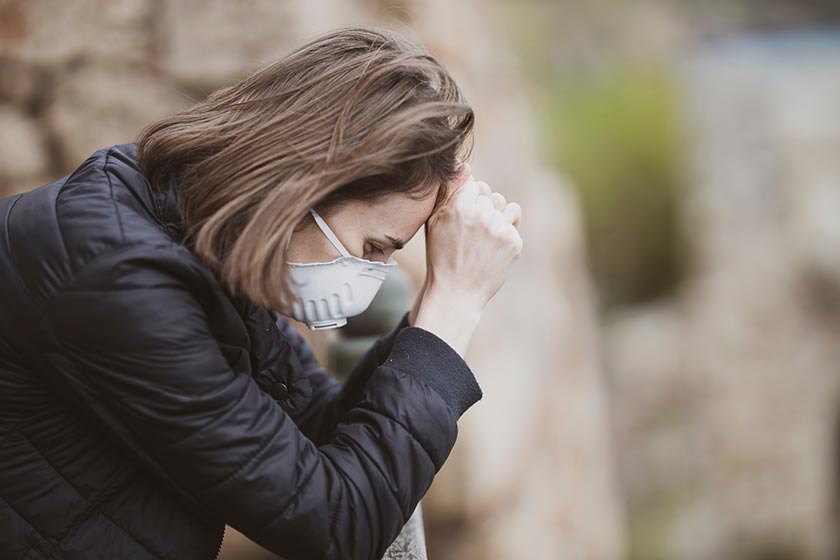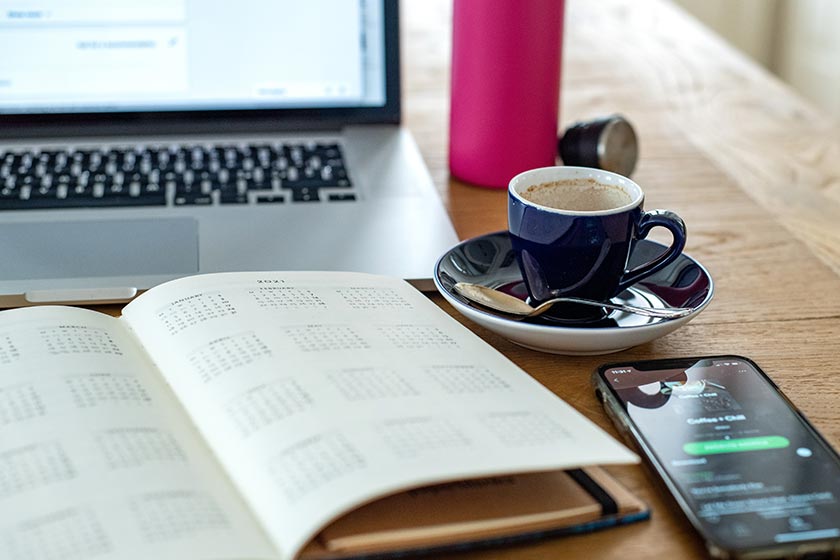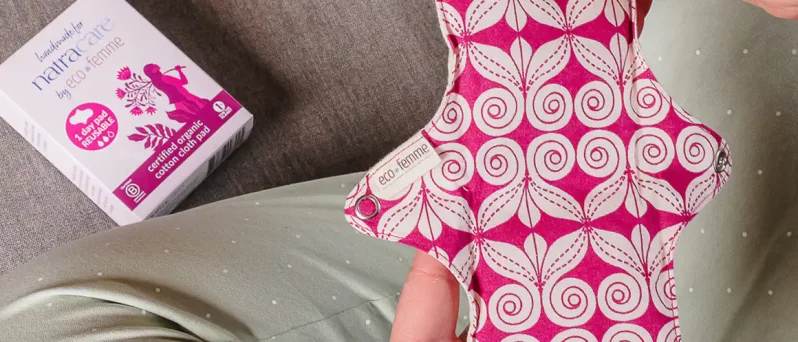Your periods might be as regular as clockwork, and then, bam, something comes out of nowhere to throw them off. It can be hard to know what’s going on inside of us without an understanding of the intricacies of the human body – we’ve only got a few signs to go by, such as what our period blood is telling us. Here are some reasons why your period might become irregular, and tips on how to make them regular again.
What is an irregular period?
An irregular period is when the length of your menstrual cycle changes. If your periods are irregular, this means that they’ll be either early or late most months.
An average menstrual cycle lasts for 28 days, although it’s very normal for it to be a bit shorter or longer than this. Between 21 and 35 days is considered fine and healthy.
After puberty, many people develop a regular cycle with a similar length of time between periods. But even once your periods have settled into a routine, it’s not uncommon for your cycle to vary by a few days each time.
According to the UK’s NHS (National Health Service), you should see a medical professional if:
- Your periods suddenly become irregular and you’re under 45
- You have periods more often than every 21 days or less often than every 35 days
- Your periods last longer than 7 days each
- There’s a big difference (at least 20 days) between your shortest and longest menstrual cycle
- You have irregular periods and you’re struggling to get pregnant
Hormonal changes
Menarche (the beginning of having periods) and menopause (the end of having periods) both mark big hormonal changes in your body. If you’re going through either of these, then your periods are very unlikely to be regular.
If your period is irregular when you’re first starting your period, then it’s likely that it will settle down as your body gets used to menstruating. You can read about the signs you’re starting your period here.
If your periods become more irregular as you approach your 50s, this can be a sign that they’re slowing down and are soon due to stop altogether. Although of course, all bodies are different and menopause can begin earlier or later in life.

Birth control changes
If you’ve recently begun – or finished – using hormonal birth control, the likelihood is that it will alter your menstrual cycle until your body settles into its new norm and adjusts to the change.
If you’ve been off birth control for a while but you feel that your periods are disordered as a result, make sure to book an appointment with a health professional to discuss any potential issues.
Irregular periods?
If you’re not sure when to expect your period, Natracare panty liners are perfect for ‘just in case’ protection!

Find out more
Weight loss or weight gain
Losing or gaining weight, especially if you lose or gain a lot in a short space of time, can cause your period to change in length and frequency.
Very generally speaking, it’s important to make sure that you’re active but not over-exercising, to avoid under or over-eating regularly, and to focus on healthy lifestyle changes rather than going on diets which cause your weight to yo-yo.
Everybody’s body is different though. There’s a lot of conflicting, and often, damaging information out there about weight management. Only you know if your weight gain or loss is right for your body type. If you feel concerned that you’re losing or gaining weight too quickly, or if you have other concerns about your diet, make sure to speak to your doctor.

Stress
When it comes to changes to your menstrual cycle, stress can be a major factor. We’ve heard from many Natracare customers that their periods have been very different over the past 5 months – of course, periods don’t stop for a pandemic! This shift could be partly to do with a difference in the amount of physical activity we’re all doing (see point below!) but is more likely to do with high levels of stress – a global pandemic is a particularly stressful event and we each react to stress in different ways!
If you are stressed at the moment, then perhaps you can find a way to take some time to regulate your emotions every day. Perspective is everything, and the body governs how we feel, even if we can’t change our external circumstances. There are things you can do to de-stress your body, such as going for a walk in nature, doing yoga or taking a bath.
Whatever it is that makes you feel better, make sure to make time for yourself and to recharge your batteries.

Change to routine
How much we move our bodies has a massive impact on the systems in our bodies, and our reproductive systems are no exception to this. If you’re used to walking 10,000 steps a day and suddenly, you’re walking 100 (it’s not far from the sofa to the fridge, and lockdown has shrunk most people’s worlds quite considerably) you might find that your periods are behaving differently. Equally, if you’re used to doing not much at all, and you’re suddenly very active, you might find that your menstrual cycle is altered by this, too.
See what happens if you balance your levels of activity. If you’re very inactive, try going for a walk each day, or doing more exercise. And if you’re tired and overactive, try resting a bit more. If you do this for a while and nothing changes, then go and see a doctor.
Medication or other chemicals in the body
If you’ve recently started taking a new type of medication, or if you’ve been partying hard and putting other chemicals in your body, then you might find that your periods are affected.
Give your new medication a chance to settle in and if your periods still don’t return to normal, speak to your doctor about what this might indicate. Sometimes this might be a known side effect, but sometimes not.

Not keeping track of dates!
If you’re not used to keeping track of them, your periods might feel irregular when they’re not.
Use a period tracker app or diary to keep a closer eye on them – they might be more normal than you think. If you are worried about your cycle and the gap between periods is longer than 35 days, or shorter than 21 days, then make sure to see your doctor.
Do you have any experience with irregular periods? Let us know in the comments below.











hi! this is my first period and it’s been three days so far, my first day there was a lot of blood then there was spotting now there is spotting to nothing. is that normal, or is my period over?